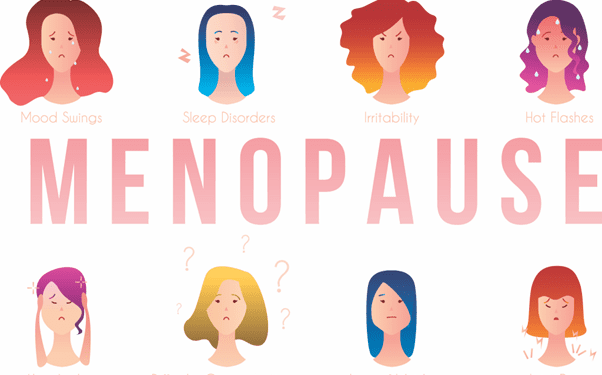Menopause is a natural phase in every woman’s life, marking the end of her reproductive years. However, this transition often comes with significant physical and emotional changes. Preparing for menopause involves understanding the symptoms, exploring treatment options, and adopting strategies to ensure a smooth transition. Here are essential tips to help you navigate this stage of life with confidence and ease.
Understanding Menopause and Its Symptoms
Menopause typically occurs between the ages of 45 and 55 and is officially diagnosed after 12 consecutive months without a menstrual period. Common symptoms include hot flashes, mood swings, night sweats, and sleep disturbances. While these symptoms vary from person to person, being informed helps you recognize changes early and take appropriate action.
Regular Health Checkups Are Essential
Before menopause, it’s crucial to schedule regular health checkups to monitor your overall well-being. Hormonal changes can increase the risk of certain conditions, such as osteoporosis, heart disease, and breast cancer. A healthcare provider can recommend screenings like bone density tests and mammograms to ensure early detection and effective management.
Hormone Replacement Therapy (HRT) Options
Hormone replacement therapy is a common treatment for managing menopause symptoms. It helps restore hormone levels, reducing the severity of symptoms like hot flashes and vaginal dryness. One effective option is estradiol patches, which deliver estrogen through the skin, providing a steady release of hormones. This non-invasive method is convenient and widely recommended for symptom relief.
Maintaining a Balanced Diet
A well-balanced diet plays a vital role in managing menopause symptoms. Foods rich in calcium and vitamin D, such as dairy products, leafy greens, and fortified cereals, support bone health. Incorporating omega-3 fatty acids, found in fish and flaxseeds, may reduce inflammation and improve mood. Avoid excessive caffeine, alcohol, and spicy foods, as these can trigger hot flashes or disrupt sleep.
Staying Active and Exercising Regularly
Regular exercise is beneficial for both physical and mental health during menopause. Weight-bearing activities like walking or jogging strengthen bones, while yoga and stretching improve flexibility and reduce stress. Exercise also helps manage weight, which can become more challenging due to hormonal changes.
Stress Management Techniques
Hormonal fluctuations can make you more susceptible to stress and anxiety during menopause. Practicing relaxation techniques such as meditation, deep breathing, or mindfulness can help you stay calm and focused. Spending time outdoors or engaging in hobbies can also provide emotional balance.
Lifestyle Changes for Improved Well-Being
Menopause is an ideal time to reassess lifestyle habits and adopt healthier ones. For example, quitting smoking reduces the risk of heart disease and osteoporosis. Limiting alcohol consumption and maintaining a consistent sleep routine can also improve overall health. These lifestyle changes to make before winter are especially important, as the colder months can exacerbate symptoms like joint stiffness and mood fluctuations.
Managing Hot Flashes and Night Sweats
Hot flashes are one of the most common and disruptive menopause symptoms. Staying cool by wearing breathable fabrics, using fans, and keeping your environment well-ventilated can help. For severe cases, medical options like estradiol patches may provide significant relief by stabilizing hormone levels and reducing the frequency of hot flashes.
Emotional Health and Support Networks
Mood swings and irritability are common during menopause due to fluctuating hormones. Talking to friends, joining support groups, or seeking professional counseling can help you navigate these emotional changes. Building a strong support system ensures you feel understood and connected during this transitional phase.
The Importance of Sleep Hygiene
Sleep disturbances are another hallmark of menopause. Establishing a bedtime routine and creating a comfortable sleep environment can help improve rest. Avoiding screens before bed, limiting caffeine intake, and engaging in relaxing activities like reading can also promote better sleep.
Maintaining Skin and Hair Health
Hormonal changes can affect skin elasticity and hair health. Staying hydrated and using moisturizers with hyaluronic acid can improve skin texture. For hair health, consider gentle shampoos and avoid excessive heat styling. A diet rich in vitamins and antioxidants also promotes glowing skin and strong hair.
Monitoring Bone Health
The decline in estrogen levels during menopause can lead to reduced bone density, increasing the risk of fractures. It is crucial to ensure adequate calcium and vitamin D intake through diet or supplements. Weight training and resistance exercises strengthen bones and improve overall mobility.
Adjusting Your Wardrobe for Comfort
As symptoms like hot flashes and night sweats become common, choosing lightweight, breathable fabrics can make a difference. Layering clothing allows you to adjust your outfit based on your comfort level, particularly during temperature fluctuations.
Communication with Healthcare Providers
Open communication with your healthcare provider is key during menopause. Discuss your symptoms, concerns, and treatment options to find personalized solutions. Regular check-ins allow for adjustments to your care plan as needed, ensuring you stay comfortable and healthy.
Preparing for Post-Menopause
While menopause marks the end of menstruation, its effects on the body continue into post-menopause. Maintaining a proactive approach to health and wellness is essential for long-term well-being. Staying informed about changes and risks helps you take the necessary steps to thrive in this new chapter.
Exploring Natural Remedies
In addition to medical treatments, some women find relief through natural remedies. Herbal supplements like black cohosh or red clover may help reduce symptoms like hot flashes. However, always consult a healthcare professional before starting any new supplements to ensure safety and efficacy.
Staying Positive and Embracing Change
Menopause can feel overwhelming, but it’s also an opportunity to embrace a new phase of life. Focusing on self-care, cultivating gratitude, and setting personal goals can help you approach this stage with optimism. Celebrating small victories and prioritizing your well-being can make a big difference.
Leveraging Technology for Support
Technology offers tools to track symptoms, monitor progress, and stay informed. Apps designed for menopause can help you manage symptoms, log health data, and connect with resources. These tools provide valuable insights and empower you to take control of your health.
A Personalized Approach to Menopause
Every woman’s menopause experience is unique, requiring a tailored approach to health and wellness. From exploring treatments like estradiol patches to adopting lifestyle changes to make before winter, preparing for this phase with knowledge and proactive measures ensures a smoother transition. Working closely with healthcare professionals and seeking support from your community can help you thrive during this time of change.

















